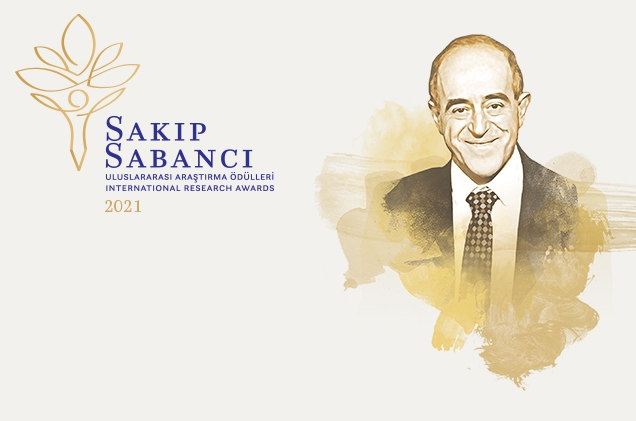2021 Sakıp Sabancı International Research Awards
The theme for the 2021 edition of the annual Sakıp Sabancı International Research Awards given by Sabancı University is "Post-Corona World And Turkey: Social Psychological And Political Impacts Of The Pandemics.” The deadline for submissions is January 15, 2021.

The Sakıp Sabancı International Research Awards involves a Jury Prize that will be awarded to an individual who has made distinguished contributions on the above-mentioned theme.
In addition to the Jury Prize, Essay Awards will be given to three researchers under 45 years of age. An independent and international jury will select the Essay Award and Jury Prize awardees.
Award Theme
In coping with Covid-19 pandemic, government policies in the world displayed considerable differences. While some governments implemented social distancing through emergency laws, others approached this as a matter of personal choice and ventured into persuading their citizens towards self-confinement, with mixed success. In the fight against the pandemic, the success of the government policies became increasingly dependent on the behavior of their citizens. Civic activism was curtailed along with the decline in the citizens’ ability to come together, organize and advocate. Nevertheless, new civil society actors and a novel type of civic activism emerged in attempts to provide essential services such as food and masks, stop the spread of incorrect and harmful information as well as protect the disadvantaged and marginalized groups.
What were the social psychological factors in understanding the impact of perceived threat of spreading Covid-19? Did the pandemic increase potentially maladaptive collective defensive behaviors, such as stigmatization, xenophobia, social isolation, fear of job loss, distrust toward health system and governments, as well as adaptive social behaviors, such as, social cohesion, creative collective actions, and altruism?
What were the factors behind the adoption of such different government policies and citizen behavior in the face of the pandemic? Did the pandemic trigger novel government policies and citizen behavior or rather lend more credence to the already existing tendencies and status quo? What were the impacts of societal underpinnings such as the prevalence of individual and/or collective life styles in different societies in addressing the pandemic? Can individual autonomy coexist alongside the collective needs of the societies facing the pandemic? How did the government and citizens in Turkey respond to the pandemic and how do these responses compare with their counterparts in other countries? Can responses to the pandemic enable us to cope better with other impending threats such as climate change?
SUBMISSIONS GUIDELINES FOR THE ESSAY AWARDS• Submissions must be made via the website at https://award.sabanciuniv.edu/submityourentryform E-mail submissions will be dismissed.• Submissions must be in English and related to the theme of the year.• Submissions must be unpublished original work. Unpublished working papers that appeared in series (such as NBER, CEPR Working Papers...etc.) or departmental websites are eligible to apply as long as there are not published.• To be eligible, all coauthors in the submitted papers must be born in or after 1976.• In case of coauthored submissions, all authors must be eligible to apply.• Submissions must be in pdf format.• Submissions must be anonymous. Please eliminate any indications that may help identify the coauthors.• There are no formatting guidelines in terms of font size, line spacing, etc.• Submissions must include a short CV of the submitting coauthor.• Submissions must include a separate title page including the name and contact details of all coauthors, acknowledgements and an abstract of less than 150 words.